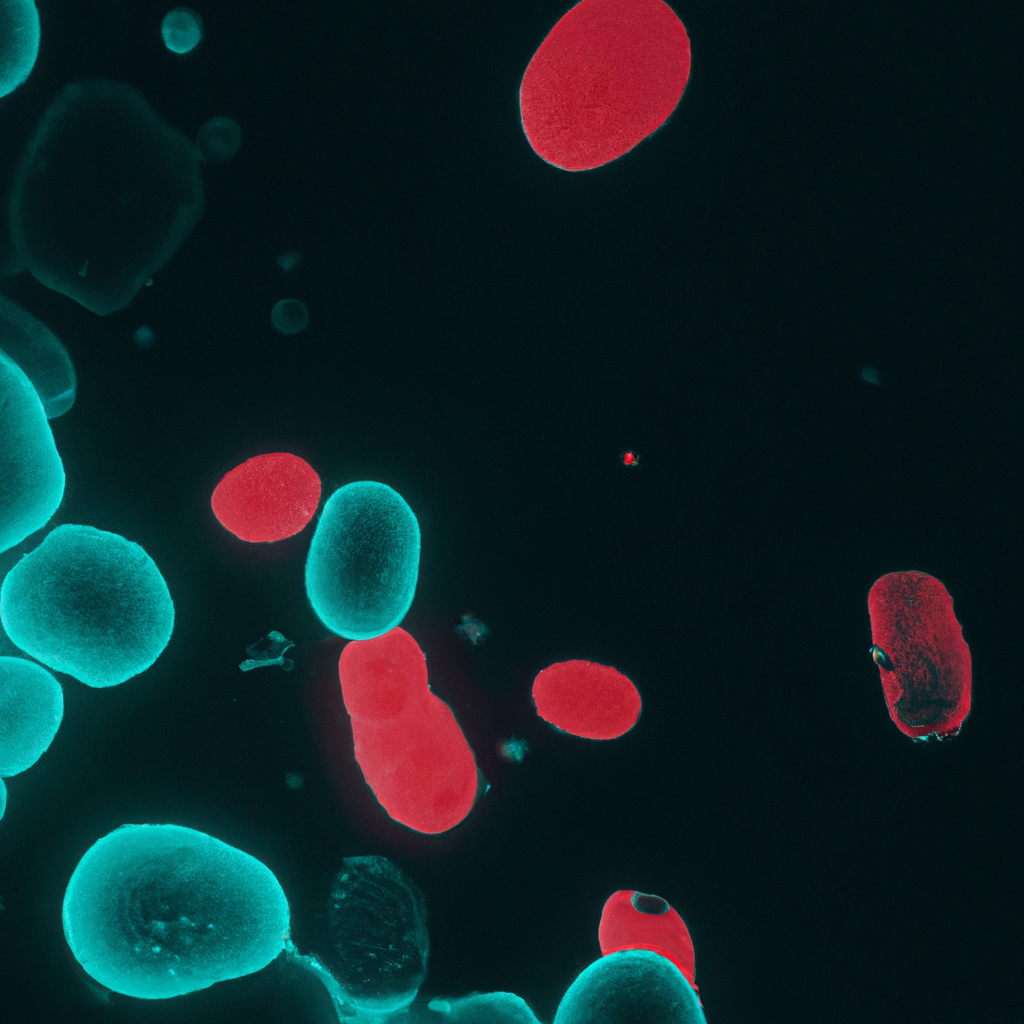-
Reading Roadmap
- Inhibiting Adipocyte YY1 Enhances Thermogenesis and Spermidine Production for Improved Metabolism
- Key Takeaways
- Introduction: Unraveling the Role of Adipocyte YY1
- Enhancing Thermogenesis through YY1 Inhibition
- Spermidine Production and Its Health Benefits
- Future Directions and Potential Implications
- FAQ Section
- What is YY1?
- How does YY1 inhibition enhance thermogenesis?
- What is spermidine and what are its health benefits?
- What are the potential implications of these findings?
- What are the next steps in this research?
- Conclusion: The Potential of YY1 Inhibition for Metabolic Health
- Key Takeaways Revisited
Inhibiting Adipocyte YY1 Enhances Thermogenesis and Spermidine Production for Improved Metabolism

[youtubomatic_search]
Key Takeaways
- Adipocyte YY1 inhibition can enhance thermogenesis and spermidine production, leading to improved metabolism.
- Increased thermogenesis and spermidine production can help combat obesity and metabolic diseases.
- Research has shown that inhibiting the YY1 protein in fat cells can increase energy expenditure and reduce obesity.
- Spermidine, a type of polyamine, has been linked to various health benefits, including anti-aging effects and improved cardiovascular health.
- Further research is needed to fully understand the potential of YY1 inhibition as a therapeutic strategy for metabolic disorders.
Introduction: Unraveling the Role of Adipocyte YY1
Yin Yang 1 (YY1) is a transcription factor that plays a crucial role in various biological processes, including cell proliferation, differentiation, and apoptosis. Recent studies have revealed that YY1 is also involved in the regulation of adipogenesis, the process by which fat cells (adipocytes) are formed. In particular, inhibiting YY1 in adipocytes has been found to enhance thermogenesis and spermidine production, leading to improved metabolism and potential benefits for metabolic health.
Enhancing Thermogenesis through YY1 Inhibition
Thermogenesis is the process by which the body produces heat, contributing to energy expenditure and metabolic rate. In a study published in Nature Communications, researchers found that inhibiting the YY1 protein in fat cells can increase thermogenesis, leading to increased energy expenditure and reduced obesity in mice. This suggests that YY1 inhibition could potentially be used as a therapeutic strategy for obesity and related metabolic disorders.
Spermidine Production and Its Health Benefits
Spermidine is a type of polyamine that has been linked to various health benefits. It has been found to promote autophagy, a cellular process that helps maintain cellular health and function. Spermidine has also been associated with anti-aging effects and improved cardiovascular health. In the same study mentioned above, the researchers found that YY1 inhibition in adipocytes also led to increased spermidine production, further contributing to the potential health benefits of this approach.
Future Directions and Potential Implications
While these findings are promising, further research is needed to fully understand the potential of YY1 inhibition as a therapeutic strategy for metabolic disorders. It will be important to investigate the safety and efficacy of this approach in humans, as well as to explore the underlying mechanisms by which YY1 inhibition enhances thermogenesis and spermidine production. Nevertheless, these findings represent an important step forward in our understanding of adipocyte biology and metabolic health.
FAQ Section
What is YY1?
YY1 is a transcription factor that plays a crucial role in various biological processes, including cell proliferation, differentiation, and apoptosis. It is also involved in the regulation of adipogenesis, the process by which fat cells are formed.
How does YY1 inhibition enhance thermogenesis?
Inhibiting the YY1 protein in fat cells has been found to increase thermogenesis, leading to increased energy expenditure and reduced obesity in mice. This suggests that YY1 inhibition could potentially be used as a therapeutic strategy for obesity and related metabolic disorders.
What is spermidine and what are its health benefits?
Spermidine is a type of polyamine that has been linked to various health benefits. It has been found to promote autophagy, a cellular process that helps maintain cellular health and function. Spermidine has also been associated with anti-aging effects and improved cardiovascular health.
What are the potential implications of these findings?
These findings suggest that inhibiting YY1 in adipocytes could potentially be used as a therapeutic strategy for obesity and related metabolic disorders. However, further research is needed to fully understand the potential of this approach and to investigate its safety and efficacy in humans.
What are the next steps in this research?
The next steps in this research include investigating the underlying mechanisms by which YY1 inhibition enhances thermogenesis and spermidine production, as well as exploring the safety and efficacy of this approach in humans.
Conclusion: The Potential of YY1 Inhibition for Metabolic Health
In conclusion, inhibiting adipocyte YY1 has been found to enhance thermogenesis and spermidine production, leading to improved metabolism. These findings suggest that YY1 inhibition could potentially be used as a therapeutic strategy for obesity and related metabolic disorders. However, further research is needed to fully understand the potential of this approach and to investigate its safety and efficacy in humans. Nevertheless, these findings represent an important step forward in our understanding of adipocyte biology and metabolic health.
[youtubomatic_search]
Key Takeaways Revisited
- Adipocyte YY1 inhibition can enhance thermogenesis and spermidine production, leading to improved metabolism.
- Increased thermogenesis and spermidine production can help combat obesity and metabolic diseases.
- Research has shown that inhibiting the YY1 protein in fat cells can increase energy expenditure and reduce obesity.
- Spermidine, a type of polyamine, has been linked to various health benefits, including anti-aging effects and improved cardiovascular health.
- Further research is needed to fully understand the potential of YY1 inhibition as a therapeutic strategy for metabolic disorders.

Leave a Reply